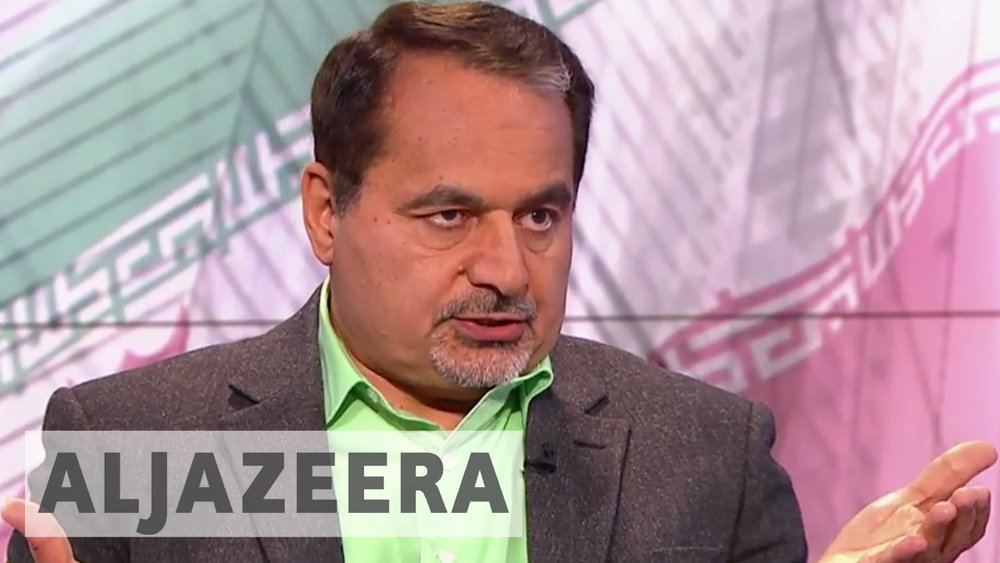This is why Iran should play a major role in the negotiations to ban nuclear weapons

Since the advent of nuclear weapons, nations and grassroots movements across the world have sought to eliminate the risk they pose to life on Earth through nuclear prohibition and disarmament.
The foundation for these efforts has been the 1968 nuclear Non-Proliferation Treaty (NPT), Article VI of which calls on its 190 signatories for “a treaty on general and complete disarmament under strict and effective international control”.
Last autumn, 123 states issued a call on the United Nations for a nuclear ban treaty, which lead to a draft of a legally-binding text to prohibit nuclear weapons on 22 May 2017.
Now, from 15 June-7 July, representatives from roughly 130 nations will negotiate the final text and try to make the treaty a reality. Sadly, all the recognised nuclear-weapons states and their allies have voiced strong opposition to the historic talks.
Though the five recognised nuclear powers are signatory to the NPT and have been obligated to pursue disarmament for nearly 50 years, they have not only failed to do so but now have far-reaching plans to upgrade and extend the lifespans of their nuclear weapons.
Even more egregious, they have de facto supported the proliferation of nuclear weapons by establishing strategic relations with countries like India, Pakistan and Israel, which have rejected the NPT and amassed sizeable weapons arsenals.
All told, there exist about 15,000 nuclear weapons in the world today, of which the U.S. and Russia possess around 7,000 each. America’s nuclear modernisation program alone is estimated to cost the country $1 trillion over the next 30 years.
Since the NPT went into effect, the reality has been that the world has been split between the haves and have-nots of nuclear weapons, and the haves have been able to selectively agree on the new haves. This longstanding status quo has now led to a majority of nations – cognizant that the world has been held hostage to the weapons stockpiles of the nuclear-armed states – to push for a prohibition treaty, to put political and legal restraints on the possession of nuclear weapons.
One state supporting the ban treaty negotiations, Iran, can play a unique role in making the talks a success. Three chief reasons explain why Iran can and should be a strong advocate to advance the causes of nuclear non-proliferation and the elimination of all weapons of mass destruction (WMDs).
First, the July 2015 nuclear deal agreed to by Iran and six major world powers – formally known as the Joint Comprehensive Plan of Action (JCPOA) – sets a new global nuclear non-proliferation standard far stronger than the NPT. As President Obama has stated, the deal cuts “off every single one of Iran’s pathways to a […] nuclear weapons program,” and establishes the “most comprehensive and intrusive inspection and verification regime ever negotiated”.
Iran is the only country that has banned the use of WMDs with religious edicts at the highest levelsConsequently, the JCPOA can serve as a new basis for the verification and enforcement provisions of the disarmament treaty that the prohibition treaty will call for. To this end, Iran can play an instrumental role in pushing for the globalisation of the JCPOA’s principles, and can even position itself as a regional nuclear fuel hub as part of future prohibition and disarmament treaties.
Second, Iran’s long-established track record of seeking to advance the cause of nuclear non-proliferation gives it a responsibility to continue its role of spearheading non-proliferation initiatives.
In 1974, Iran first proposed a Middle East nuclear-weapon-free zone (ME-NWFZ) at the UN General Assembly, which was passed by the body and has been renewed annually since 1980. The ban treaty negotiations provide Iran and other regional states the opportunity to realise a ME-NWFZ.
Third, Iran is the only country that at the highest religious levels has issued religious edicts banning WMDs. Iran’s position in this regard was shaped during the 1980s Iran-Iraq War, during which it was the victim of WMDs in the form of chemical weapons attacks, but refused to retaliate in kind due to religious considerations.
This was due to a fatwa, or religious decree, by Iran’s revolutionary father Ayatollah Imam Khomeini, against the production or use of chemical, biological, or nuclear weapons. Iran’s current Supreme Leader Ayatollah Ali Khamenei has upheld this fatwa, uniquely binding Iran to be unequivocally against WMDs of all kinds and making it a sincere voice in any WMD-prohibition debate.
The ban treaty negotiations represent a potential major historical turning point, where a majority of the world’s nations will act to safeguard humanity’s future from the threat of nuclear holocaust. While the nuclear-weapons states argue that they need their weapons for reasons of deterrence and strategic balance, their logic does not hold in a world where their nuclear-weapons monopoly is unsustainable.
Increasingly, other countries may seek the same status relying on the same logic as the five-recognised nuclear-weapons powers. The North Korean case serves as an example of how an NPT member may leave the treaty and develop nuclear weapons.
If global peace and stability is to be ensured for future generations, a new model for international security must be created, one that does not rely on WMDs of any kind.
Iran, given its longstanding commitment to the non-proliferation of WMDs, must play a decisive role in ensuring the success of the nuclear ban treaty negotiations to bring about such a world.
Leave a Comment